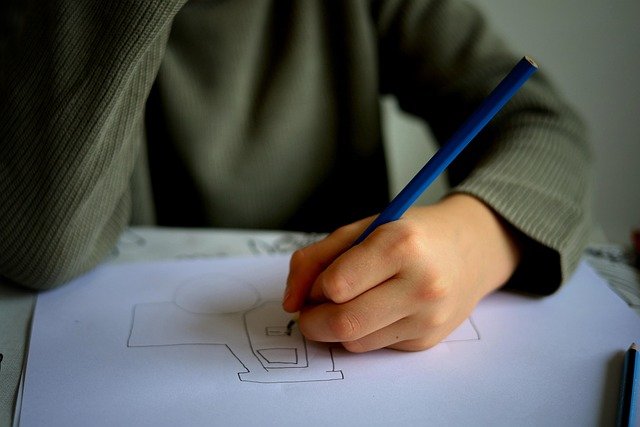Did You Know That Fashion Design Courses Can Uncover Hidden Talents?
Many people possess creative abilities they have never fully explored or recognized. Fashion design education offers a unique environment where individuals can discover skills they didn't know they had, from sketching and pattern-making to color theory and textile manipulation. Through structured learning, hands-on projects, and expert guidance, students often uncover talents that transform their personal and professional trajectories in unexpected ways.

Fashion design courses provide more than technical training in garment construction and trend analysis. They create opportunities for self-discovery, allowing participants to identify strengths and abilities that may have remained dormant without proper cultivation. Whether you are considering a career shift, exploring a creative hobby, or seeking personal growth, fashion design education can reveal surprising aspects of your creative potential.
Exploring The Benefits Of Fashion Design Education
Fashion design programs offer comprehensive curricula that cover everything from foundational drawing techniques to advanced draping methods. Students learn about fabric properties, garment construction, fashion history, and contemporary industry practices. This broad exposure helps individuals understand where their natural inclinations lie. Some discover an aptitude for technical pattern-making, while others excel in conceptual design or color coordination. The structured environment of a course provides the framework needed to experiment safely and identify what resonates most deeply. Beyond technical skills, fashion education cultivates critical thinking, problem-solving abilities, and visual literacy that transfer to numerous creative fields.
Identifying Personal Strengths Through Creative Projects
Hands-on projects form the backbone of most fashion design courses. These assignments challenge students to move beyond theoretical knowledge and apply concepts in tangible ways. When tasked with designing a capsule collection or creating garments from unconventional materials, individuals often surprise themselves with their resourcefulness and innovation. A student who thought they lacked drawing skills might discover a talent for textile manipulation. Someone who considered themselves uncreative might excel at translating abstract concepts into wearable art. These projects provide immediate feedback and tangible results, making it easier to recognize emerging strengths. The iterative process of sketching, prototyping, revising, and finalizing designs builds confidence while revealing hidden capabilities that might never surface in other contexts.
The Role Of Mentorship In Developing Design Skills
Experienced instructors play a crucial role in helping students recognize and nurture their talents. Fashion educators bring industry knowledge and can identify potential in students that they might overlook themselves. A mentor might notice a student’s exceptional eye for proportion or their innovative approach to problem-solving. This external validation often proves essential for individuals who doubt their creative abilities. Mentors provide personalized guidance, suggesting areas for further exploration and offering constructive feedback that accelerates skill development. They also share insights about industry pathways, helping students understand how their specific talents align with various career opportunities. The mentor-student relationship creates a supportive environment where experimentation is encouraged and mistakes become learning opportunities rather than failures.
Insights From Industry Experts On Talent Discovery
Professionals working in fashion consistently emphasize that talent manifests in diverse ways. Some designers excel at haute couture construction, while others thrive in sustainable fashion innovation or digital fashion design. Industry experts note that many successful designers discovered their calling through education rather than innate certainty. Fashion courses expose students to various specializations, from accessory design to fashion journalism, allowing them to explore different facets of the industry. Guest lectures, industry collaborations, and internship opportunities provide real-world context that helps students understand where their skills might fit within the broader fashion ecosystem. Experts also highlight that technical proficiency can be taught, but creativity, curiosity, and persistence are qualities that emerge through practice and exploration.
How Fashion Design Courses Foster Creative Confidence
Confidence often proves as important as technical ability in creative fields. Fashion design courses build this confidence incrementally through achievable milestones and progressive skill development. Early projects focus on fundamental techniques, allowing students to build competence before tackling complex challenges. As skills develop, assignments become more ambitious, encouraging risk-taking and personal expression. The collaborative environment of most courses also provides peer support and inspiration. Seeing classmates overcome similar challenges normalizes the learning process and reduces feelings of inadequacy. Fashion shows, portfolio reviews, and public presentations give students opportunities to share their work, receiving validation that reinforces their growing confidence. This psychological transformation often proves as valuable as the technical skills acquired, enabling graduates to pursue creative careers with conviction.
Conclusion
Fashion design courses offer far more than vocational training. They provide structured environments where individuals can safely explore their creative potential, discover hidden talents, and develop skills they never knew they possessed. Through comprehensive curricula, hands-on projects, expert mentorship, and industry exposure, students gain both technical proficiency and personal insight. Whether you pursue fashion professionally or simply seek personal enrichment, design education can unlock abilities that transform how you see yourself and your creative possibilities. The journey of discovering hidden talents through fashion design education often leads to unexpected destinations, opening doors to careers, hobbies, and forms of self-expression that might otherwise remain unexplored.




